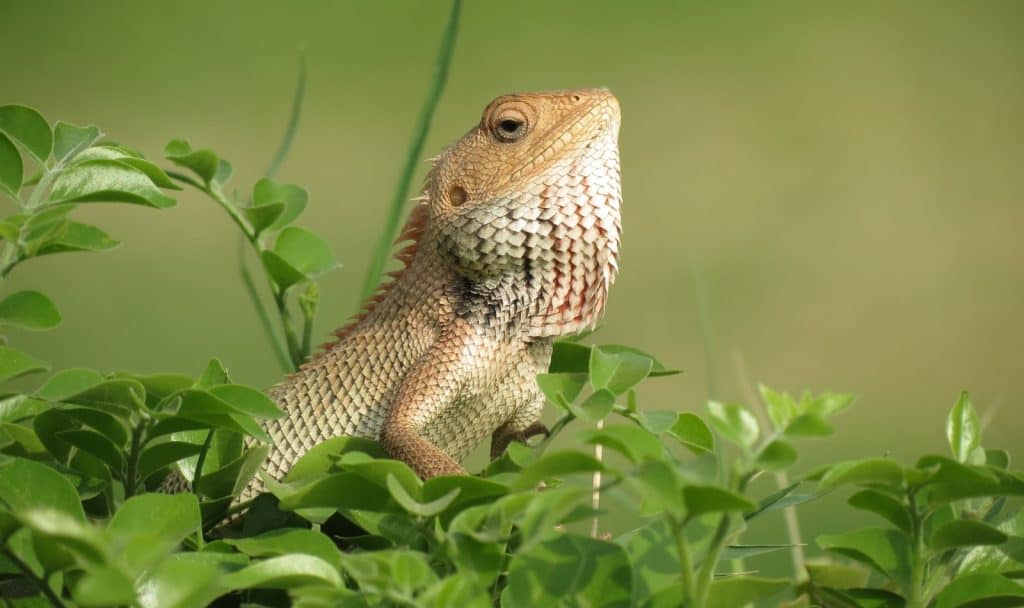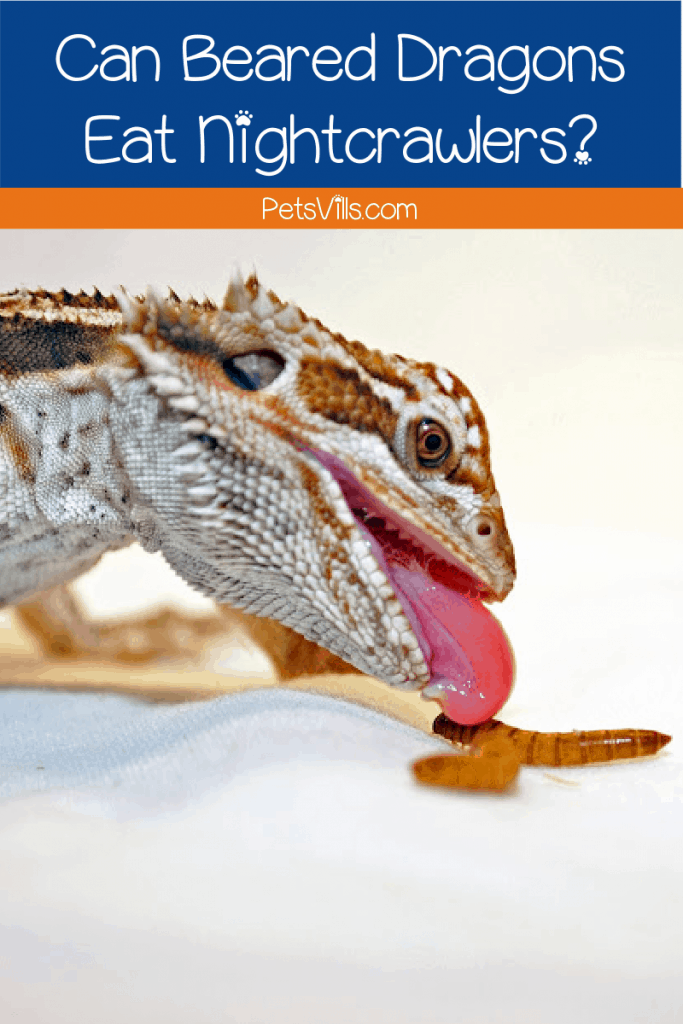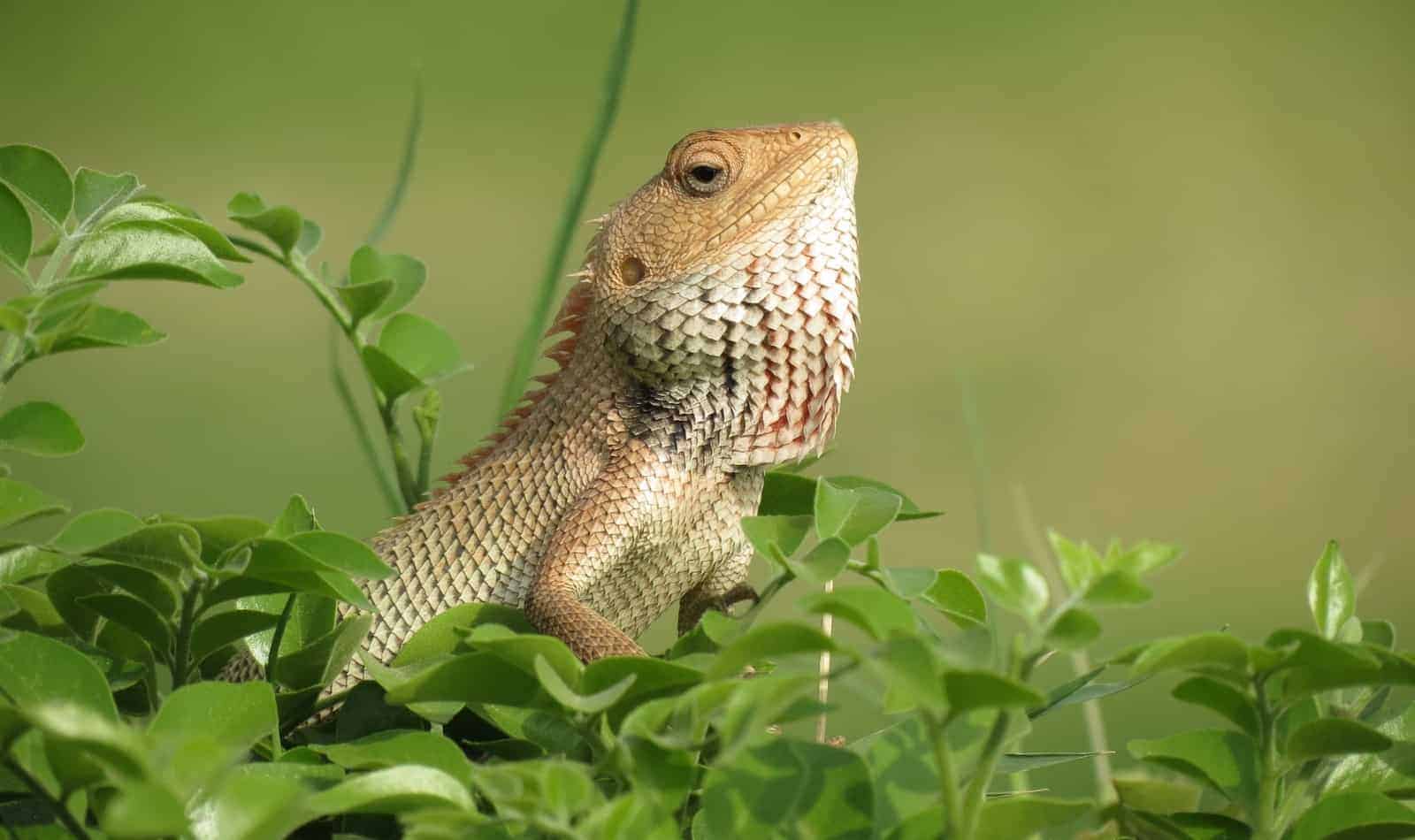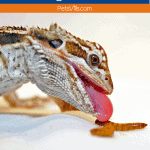Can bearded dragons eat nightcrawlers?
Since bearded dragons feed on a wide range of insects when in the wild, you may be tempted to feed them nightcrawlers, especially from your yard.
Before you do that, though, please read on to find out if it’s safe.
Check: Bearded Dragon Diet Guide
Table of Contents
Can Bearded Dragons Eat Nightcrawlers?
But can bearded dragons eat nightcrawlers?
Bearded dragons can eat nightcrawlers, but not those from your garden, since they may contain parasites and toxic pesticide residues.
However, you can purchase well-bred nightcrawlers or breed them yourself to make sure they are safe for your pet.
Please keep reading to find out more worms you shouldn’t feed your beardy and some excellent alternatives.

Check: Can Bearded Dragons Have Spinach?
Can Bearded Dragons Eat Earthworms?
While most people mention earthworms, they are often referring to nightcrawlers. But they are slightly different.
Nightcrawlers are larger (8 to 10 inches long) and are often used as fish baits.
Earthworms, on the other hand, are smaller and often used for worm composting.
The confusion exists because both types of worms are found either on the soil’s surface or within the soil profile.
Bearded dragons shouldn’t be fed earthworms either since they may contain parasites such as Platyhelminths, Nematodes, and Protozoa.
These parasites could lead to severe illnesses, damage the beardie’s digestive tract, or even cause death.
If you get the earthworms from your garden, they could contain pesticide residues that could harm your pet.
Some beardies may find the earthworms unpalatable due to the slime.
Can Bearded Dragons Eat Bait Earth Worms?
If you have some bait earthworms lying around or want to buy some for your pet from the bait shops, it’s not a good idea.
Most of the bait earthworms are collected from the wild, so they carry the same dangers as those from your backyard.
They are also often stored in an unsightly manner, which poses a more significant health risk to your bearded dragon.
Can Bearded Dragons Eat Red Wiggler Worms?
This is another type of earthworm that shouldn’t be part of your beardie’s diet. It not only has parasites, but it may also contain lots of bacteria since it eats decaying materials.
Also known as redworms (Eisenia fetida), these worms emit a foul-smelling fluid as part of their defense mechanism. You wouldn’t want that smell anywhere near you or your beardies.
Are All Earthworms Bad For Bearded Dragons?
Earthworms aren’t toxic to beardies. As a matter of fact, they are good sources of calcium, proteins, vitamins, selenium, and water.
The risk lies in feeding them earthworms from the wild.
It’s even worse for baby dragons since they don’t have an adequate immune system to fend off the parasites and toxins.
If you want to include earthworms in the beardy’s diet, make sure you’ve bred them for at least a year, gut-loading them with beneficial food such as dusted vegetables.
Or buy gut-loaded earthworms from a trusted supplier.
How Many Earthworms Should I feed My Bearded Dragon?
It would help if you did not feed your beardy too many earthworms since they contain higher amounts of fat and higher levels of calcium: phosphorous ratio.
An adult bearded dragon should eat a maximum of 30 earthworms per week, while baby bearded dragons should eat up to 20 earthworms per week.
What Other Worms Can I feed My Bearded Dragons?
Below are some earthworm alternatives.
Mealworms
Mealworms are one of the most popular feeder insects for many animals, including beardies, poultry, fish, birds, amphibians, and even some mammals.
They are more nutritious, have a higher fat content, and it will be no surprise that they’ll instantly become your bearded dragon’s favorite.
Below is a summary of the nutrient levels in mealworms;
- Moisture content – 62%
- Protein content – 20%
- Fat content – 13%
- Calcium – 133ppm
- Phosphorous – 335ppm
But don’t feed her too many of them to prevent rapid weight gain. The only exception here is if your pet is underweight.
You should feed them at least 15 to 18 mealworms per week. Younger bearded dragons can eat more mealworms.
But baby bearded dragons may have trouble ingesting the chitin (the outer shell of mealworms). Wait until they’re older before feeding them these worms.
Superworms
Also known as zophobas or morio worms, super worms are an excellent treat to feed your bearded dragon.
They are zophobas morio beetles‘ larvae and are a popular feeder insect for lots of animals.
Superworms look slightly similar to mealworms, but they’re larger and darker towards the “tail.” Below is a summary of their nutrient levels.
- Moisture – 62%
- Protein – 19.06%
- Fat – 14%
- Fiber – 2.6%
- Calcium – 173ppm
It would help if you fed your beardies at least 20 superworms per week, distributed across the feeding times.
Baby bearded dragons shouldn’t eat superworms since they have even thicker chitin than mealworms.
But you can feed juvenile bearded dragons smaller-sized super worms.
Waxworms
Waxworms are another good earthworm alternative to feed your bearded dragons. They are smaller than mealworms and are white in color.
Due to their higher fat content, they shouldn’t be fed as a staple food. But they make good treats. Include at least 5 to 6 wax worms in your pet’s diet a few days a week.
Even though they don’t have a hard chitin, the fat content is too high for baby beardies. Below is a summary of the nutrient levels in these worms.
- Moisture – 61%
- Fat – 21%
- Protein – 15%
- Calcium – 28.3mg/100mg
Butterworms
Butterworms are the larvae of Chilean moths and are a good feeder insect for most animals.
They are more nutritious than wax worms and mealworms, and you can feed them to your beardies as a regular food or as a semi-staple food.
Unlike the other worms, they are a little harder to breed and maybe more expensive. Below is a summary of their nutrient levels;
- Moisture – 58.5%
- Protein – 16%
- Fat – 5%
- Calcium – 430ppm
Other Worms to Feed a Bearded Dragon
Below are more types of worms.
- Silkworms – They have higher levels of calcium, magnesium, vitamins, and lower levels of fat.
- Hornworms – These have balanced nutritional levels and can be fed as a staple food.
- Phoenix worms
Insects to Include in Beardies Diets
As mentioned earlier, even though they don’t come across many worms in the wild, they feed on a wide range of other insects.
And these insects are now sold gut-loaded to feed reptiles, small mammals, and a wide range of other pets.
Below are some of them.
Crickets
Crickets should be fed as a staple food since they have the same nutrients as the insects beardies feed on in the wild. Below is a summary of their nutrient levels;
- Moisture – 62.9%
- Proteins – 20.5%
- Fats – 6.8%
- Fiber – 2.2%
You can gut-load the crickets with dusted vegetables (dusted with calcium and vitamins) or purchase gut-loaded crickets from a pet store.
Crickets come in 3 sizes;
- Pinheads – This is the smallest, and it’s ideal for baby bearded dragons. A baby beardie can eat 50 to 80 pinheads per day.
- Small – This size is the best for juvenile beardies. They should eat 20 to 40 per day.
- Medium and large – These are best fed to adult bearded dragons. Feed them at least 10 crickets per day.
Dubia Roaches
Dubia roaches make a good staple food for beardies.
You can easily take care of roaches since, unlike crickets, they are quiet, and they won’t try to escape. Below is their content level.
- Moisture – 61%
- Protein – 36%
- Fat – 7%
- Ash – 2%
The number of roaches a beardy can eat decreases as they age.
- Baby beardies – 10 to 20 roaches, twice per day.
- Juvenile beardies – 10 to 15 roaches
- Adult beardies – 10 to 20 roaches, 1 to 3 times per week.
Learn more about bearded dragon diet expenses and find complete lists on what else to feed them (and what NOT to feed them) in our brand-new book!

Conclusion
Nightcrawlers and earthworms aren’t necessarily toxic to bearded dragons. What matters is where you get them from.
Avoid getting them from the wild. Instead, you can breed them with safe foods or purchase them from a reputable pet store.
Did you know that not all beardies love earthworms? That’s right.
The good thing is that there’s a wide variety of other nutritious worms, and your beardy may prefer them over earthworms.

Can Bearded dragons eat nightcrawlers? what do you think about it? share below!
Barry Stingmore is a British content writer living in Fuerteventura, Spain. An animal lover at heart, he shares his home with a dog and four rescue cats and has a passion for writing about animals big and small.
Barry loves finding answers to your animal-related questions, the more research involved the better! You can rely on him to find the facts.
Find him on FACEBOOK, TWITTER AND Linkedin
Read his latest ARTICLES.
Find more about him HERE.


